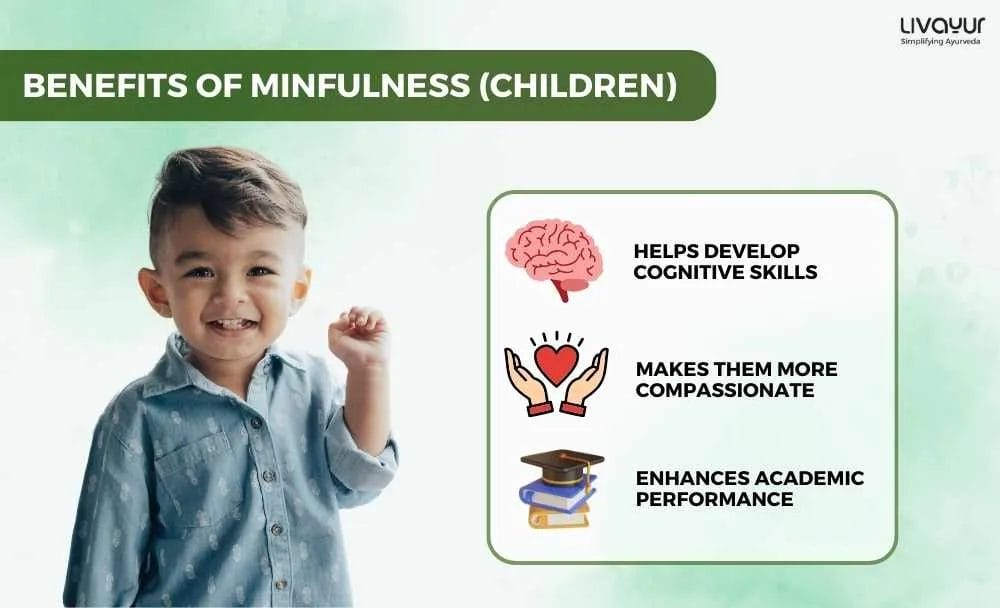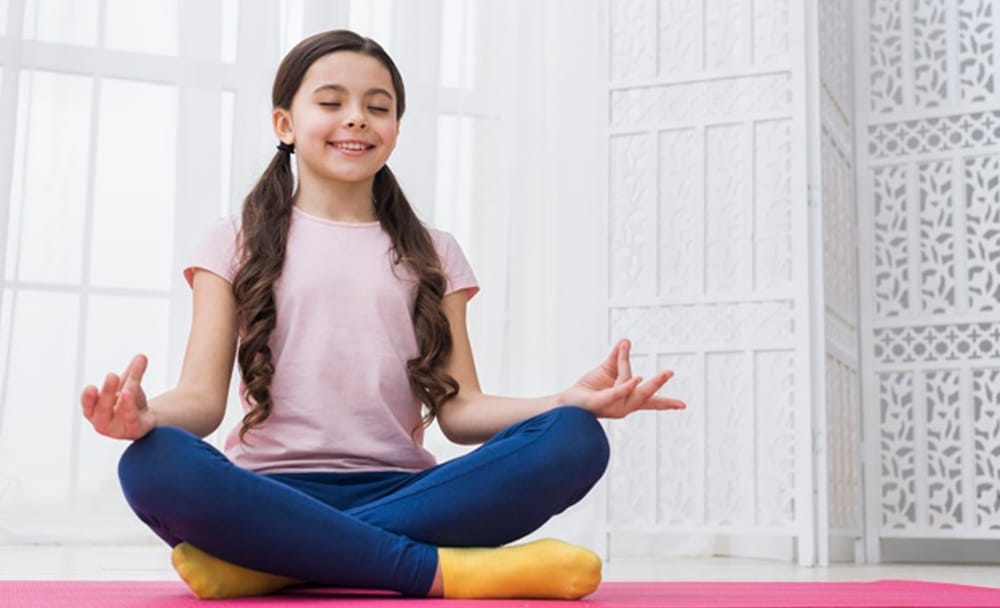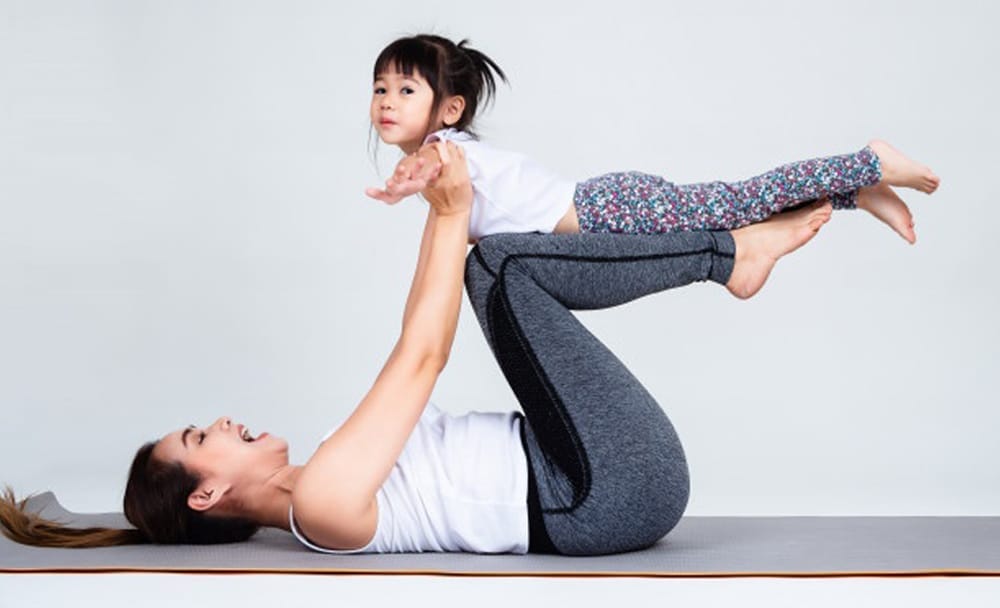Mindfulness is a meditation technique in which you become fully aware of your thoughts and bodily sensations while accepting them without any judgement. It is one of the best ways to reduce stress and develop cognitive skills. As nowadays, kids also deal with a lot of stressful situations, mindfulness can help them improve their overall health. Therefore, it is advised to teach your kids the practice of mindfulness with some easy activities.
Benefits of Mindfulness for Children
- Mindfulness helps to reduce stress and anxiety in children. It teaches kids to shift their attention from worrisome situations and cope better with stress.
- Mindfulness helps develop cognitive skills in children. It trains their minds to focus better on tasks, follow directions, retain their attention and control their emotions.
- It makes children more compassionate and empathetic to their peers and classmates and helps develop their behavioural skills.
- Mindfulness is also positively associated with the academic performance of children. It helps to develop the ability to resolve conflicts, take better decisions and react positively to negative situations.
How to Teach Mindfulness to Children?
- Listen to the Bell:
Ask your children to sit down and close their eyes. Now, ring a bell or a chime and ask them to focus on the sound. Ask them if they can hear the sound better when their eyes are closed. Ring the bell a couple of times and ask your kids to remember how many times you rang the bell. It will help make toddlers and preschoolers more mindful of the sounds and other sensations around them.
- Feel the Smell or Taste:
One of the best ways to teach toddlers and preschoolers mindfulness is by using their sensations. Blindfold your kids or ask them to close their eyes. Then, give them a rose to smell or sweet to taste. Let them feel the taste or smell for a few minutes, and then ask if they can guess what the object is.
- Walk on Thin Ice:
Ask your children to pretend to walk on thin ice in the room or the house. It will help them increase their focus and awareness of the body movements and improve their attention. It is one of the best games to play with toddlers or elementary-school-age kids.
- Draw What You See:
You can also teach mindfulness to children using everyday objects. Pick anything they see every day, such as a rock or a leaf, and then ask them to observe it closely for a few minutes. Encourage them to look at the details of the object and then draw it on paper. It will help enhance their memory, increase their focus and improve their attention.
- Mindful Eating:
Teach your kids the practice of mindful eating. Ask them to close their eyes and focus on smelling the aroma, tasting the flavour and feeling the texture of the food before eating. Then, ask them to eat the food slowly while being completely aware of the processes happening inside their mouth.
- Journal the Emotions:
As the kids grow, change your approach to teaching mindfulness. Ask your kids to write about their day in a diary. While writing, do not ask them to tell you more, instead accept whatever they have written and encourage them to write again tomorrow. Gradually, they will become efficient in describing the emotions they experienced throughout the day. It will help them accept their thoughts and emotions without judgements while also making them more aware of the sensations happening inside their bodies.
- Count Your Breaths:
Ask your children to count their breaths for a few minutes every day. You can ask them to think of the number 1 when they inhale and the number 2 when they exhale. Let them know that it is okay if their minds wander off, and they can return to counting when this happens. It is one of the best ways to start the practice of meditation in children. It will help them become more aware of their breaths and bodily sensations while accepting their thoughts without judgements.
- Practice Muscle Relaxation:
Progressive muscle relaxation is an excellent technique to practice mindfulness. Ask your children to lie down and then ask them to contract and relax specific muscles of their bodies. Start from the feet and then gradually move to the head. It will help your kids become more aware of their bodies while also improving their attention and focus.
- Start with Yoga:
Yoga not only involves physical postures but also mindful breathing techniques that help establish a connection between body and mind. Regular Yoga practice will help improve awareness, focus, attention and other cognitive skills in children while teaching them to cope better with stressful situations.
Tips for Inculcating Habits of Mindfulness in Children
- Before teaching your kids the practice of mindfulness, adopt it yourself. Practice mindfulness meditations every day for a few minutes to experience the effects of mindfulness in your life.
- Do not try to teach your kids traditional meditation in the beginning. Keep it simple with easy activities and games.
- Do not let these activities become a competition or let your kids feel pressured by these practices. You also need to keep a check on your expectations while you teach them mindfulness.
- Develop the habit of mindfulness at an early stage. You can even start practising mindfulness with your infants while massaging their bodies or bathing them.
Takeaway
Mindfulness is a healthy practice that you must inculcate in your children as early as possible. It will help them cope better in school and home while also making them emotionally, physically and mentally healthier.






















